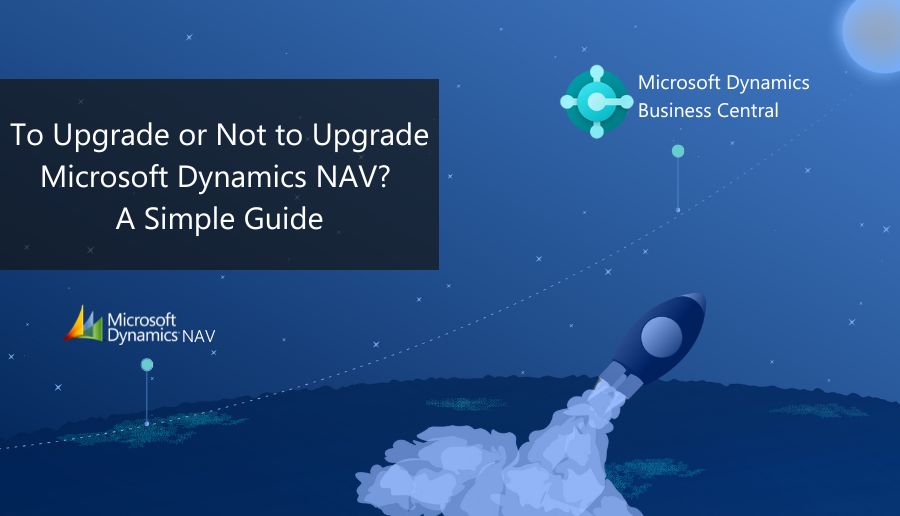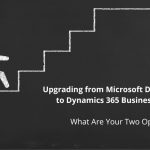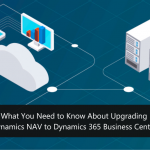It’s the end of an era for Microsoft Dynamics NAV which has been the corporate favorite for Enterprise Resource Planning since its launch in September 2005. Starting in October 2018, Microsoft Dynamic NAV was officially rebranded to Microsoft Dynamics 365 Business Central to meet more industry requirements than just accounting.
Microsoft announced that from 1st April 2019, new customers could no longer purchase Dynamics NAV. Instead, they were offered the newly rebranded Microsoft Dynamics 365 Business Central. However, existing NAV customers would continue receiving support, but upgrades on the platform would not be available.
Is there more to this upgrade other than the application’s name? Certainly! Although Dynamics NAV and Dynamics 365 Business Central share the same base code, key upgrades are exclusive to the newer Business Central, and you wouldn’t want to miss them!
Why Should You Upgrade to Dynamics 365 Business Central?
Sticking with any outdated software, such as Dynamics NAV, as opposed to upgrading, always comes with its set of challenges. Dynamics 365 Business Central is undoubtedly Microsoft’s business management future and, as such, will be prioritized in terms of resource allocation.
Here is what you need to know about the upgrade.
New Features
As previously mentioned, existing Dynamics NAV customers will receive Microsoft support but not new fundamental upgrades and features. These features include but are not limited to the following:
- Better bank reconciliation for checks and improved reporting
- Sync sales orders both ways in Business Central and Sales
- Reverse payment reconciliation journal entries
- Access attachments on additional list pages
Missing out on new features puts your organization at a competitive disadvantage. Your completion is likely using upgraded software and, as such, will have the upper hand when it comes to edge.
Cost Effective
Maintenance of the new Dynamics 365 Business Central will be cheaper for Microsoft as plenty of resources have been assigned. On the flip side, maintaining the older Dynamics NAV systems will come as a legacy cost.
Customization
Customization functions are the fundamental reasons Dynamics NAV customers love their ERP systems. You don’t have to worry about missing out on these features, as they will be available on Dynamics 365 Business Central. Furthermore, Microsoft’s customization functions will receive continuous and regular updates, unlike its Dynamics NAV counterpart.
However, there is a concern among NAV customers that their existing customizations will have to be rewritten when migrating to the new platform. This will be dependent on your specific situation, but you’ll likely have to rewrite it.
Add-ons
You may be concerned about whether your pre-existing add-ons and Independent Software Vendors (ISV) will be available on Dynamics 365 Business Central. Most, if not all, of your add-ons, will integrate seamlessly on the new platform.
Additionally, most of Microsoft’s ISVs recognize Dynamics 365 BC as the future of business management and have transitioned to the newer platform.
Microsoft Tech Stack
Microsoft Corp. is the largest software company in the world and offers a wide variety of products that include:
- Microsoft Azure Cloud
- Business products such as Dynamics 365
- Developer & IT products such as PowerBI
- Microsoft 365 (formerly Office 365)
Unlike Dynamics NAV, Dynamics 365 Business Central will integrate seamlessly with these Microsoft products, making work more effective and efficient.
Migrate to Dynamics 365 Business Central Today!
As with any business software, the transition from Microsoft Dynamics NAV to Microsoft 365 Business Central may not be quite straightforward. As a result, Microsoft recommends working with a Dynamics Partner such as Technology Management Concepts (TMC) for an easier migration process.
Not all Microsoft Dynamics are created equal. TMC has over 37 years of experience and has worked with organizations like Fieldpiece Instruments, Inc. and more during their digital transformation.
Why partner with a Microsoft Gold Certified Partner like TMC? Apart from the expertise TMC has in digital transformation, the Microsoft Partner offers a different perspective. Being a women-led tech company, TMC ushers in a new way of thinking which certainly has its advantages!






